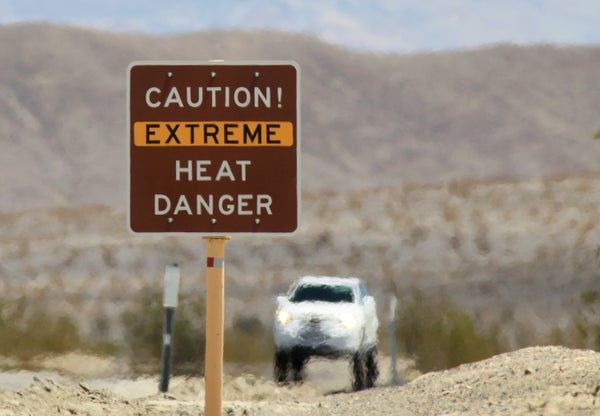This article was published in Scientific American’s former blog network and reflects the views of the author, not necessarily those of Scientific American
Summer in the San Francisco Bay Area started with a bang: a Red Flag Warning announcing 90-plus degrees Fahrenheit (32-plus degrees Celsius) in a region that rarely gets above 75 F (24 C). Three days later, I, along with the 16 million other Pacific Gas & Electric (PG&E) customers, received an ominous e-mail instructing us to prepare for wildfire-prevention power outages that could last 48 hours.
The potential impact of deenergized power lines goes much further than what can be solved by the “48-hour emergency kit” recommended by PG&E in the same e-mail. PG&E’s recommendations for stocking your “emergency kit” include drinking water, utensils, medication and a mobile phone—all of which seem perfectly collectible in a power outage. Doesn’t everyone have a flashlight app on their cell phone and a silverware drawer? More to the point, these basic supplies offer nothing to solve the real problems that occur during power outages—nothing to prevent heat stroke for vulnerable populations or means for fulfilling your professional functions if your entire county loses power for two full days.
Beyond personal health and employment concerns, the potential for financial losses to local manufacturing businesses and their employees is enormous: up to hundreds of thousands of dollars a day. (Yes, there are a few manufacturing facilities still hanging on in the Bay Area—I know, because my father owns one.)
On supporting science journalism
If you're enjoying this article, consider supporting our award-winning journalism by subscribing. By purchasing a subscription you are helping to ensure the future of impactful stories about the discoveries and ideas shaping our world today.
You can be certain banks won’t care that the reason businesses can’t make their loan payments is a “Public Safety Power Shutoff.” If you have full-time employees as a business owner, their collective salary costs in a power outage are, well, your loss. If your employees are contract employees, then the loss is theirs. Both result in reduced economic output and significant personal hardship—there are no real winners in a Public Safety Power Shutoff.
Except, of course, those people whose homes and lives are no longer at risk because they’ve been destroyed. The moral imperative for PG&E to deenergize its lines is as unequivocal as the numbers are staggering. In 2018 the total burn area
reached 676,312 hectares (up from 505,294 in 2017), and 85 people lost their lives in unspeakable suffering during the Camp Fire alone. Whatever inconvenience or financial loss preemptively de-energizing power lines may cause, it is far, far better than the risk of igniting ravenous wildfires—a risk that gets worse every year. According to a report released in April by Governor Newsom’s Strike Force, the damage estimates for the 2018 wildfire season exceed $12 billion.
A recent peer-reviewed study analyzed records for 39,556 California wildfires and found a fivefold increase in California’s annual burned area between 1972 and 2018. The increased devastation of wildfires in California and human-induced warming, which reached one degree Celsius in 2017, according to the IPCC, is not just a coincidence. Elevated wildfire frequency and intensity have been directly linked to climate trends of reduced snowpack, warmer summer days that lead to dryer fuels, and decreased precipitation during the summer and fall.
Surprisingly, despite all the empirical evidence, a contingent of people continue to believe that observed temperature increases are the result not of anthropogenic industrialization but of naturally occurring cycles. However, whether you believe the causes of climate change are anthropogenic or natural matters less each year. For Californians, the effects of increasingly destructive wildfires and the inconvenient strategies for preventing them are the same irrespective of belief. Over time, the relevance of climate change denial will diminish while the need for mitigation and adaptation intensifies.
